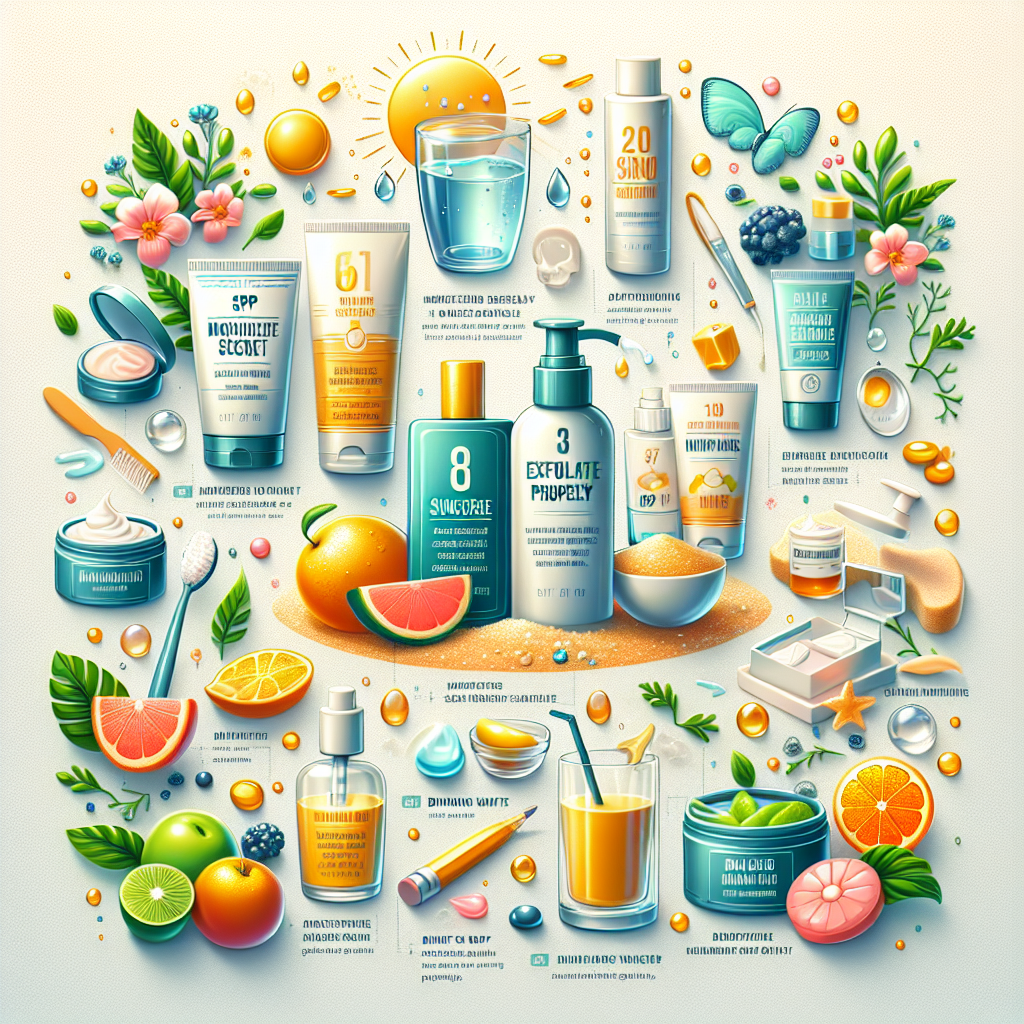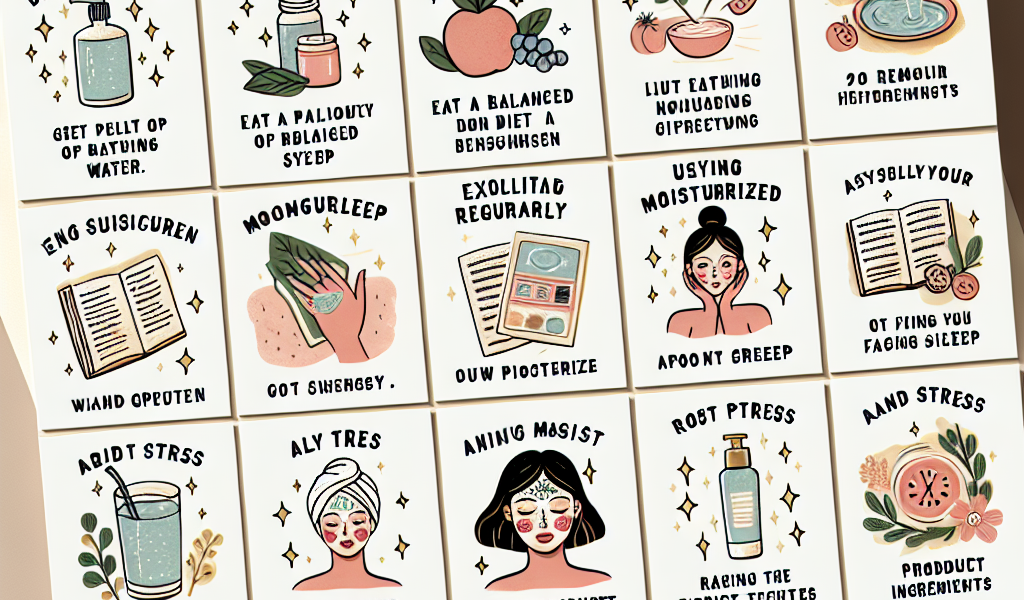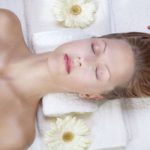-
Table of Contents
“Unlock Radiant Skin: Discover the 10 Skincare Secrets You Need to Know”
Introduction

Achieving radiant, healthy skin is a goal for many, but with the overwhelming amount of information available, it can be challenging to know where to start. Whether you’re dealing with acne, dryness, or signs of aging, understanding the fundamentals of skincare can make a significant difference. In this guide, we unveil 10 essential skincare secrets that can transform your routine and help you attain the glowing complexion you’ve always desired. From the importance of hydration to the benefits of consistent exfoliation, these tips are designed to provide you with the knowledge you need to enhance your skin’s health and appearance. Dive in and discover the key practices that can elevate your skincare game to the next level.
10 Skincare Secrets You Need To Know For Glowing Skin
Achieving glowing skin is a goal many of us strive for, but with the overwhelming amount of skincare advice out there, it can be challenging to know where to start. Fortunately, there are some tried-and-true secrets that can help you on your journey to radiant skin. First and foremost, understanding your skin type is crucial. Whether you have oily, dry, combination, or sensitive skin, knowing your skin type allows you to choose the right products and treatments tailored to your specific needs. This foundational step sets the stage for all other skincare practices.
Next, never underestimate the power of hydration. Drinking plenty of water throughout the day helps to keep your skin hydrated from the inside out. Additionally, using a good moisturizer that suits your skin type can lock in moisture and create a protective barrier against environmental stressors. Speaking of protection, sunscreen is non-negotiable. Daily application of a broad-spectrum SPF can prevent premature aging and protect against harmful UV rays, which are known to cause skin damage and increase the risk of skin cancer.
Incorporating a gentle cleanser into your routine is another essential secret. Cleansing your face twice a day removes dirt, oil, and impurities that can clog pores and lead to breakouts. However, it’s important to avoid harsh cleansers that can strip your skin of its natural oils, leading to dryness and irritation. Following up with a toner can help to balance your skin’s pH levels and prepare it for the next steps in your skincare regimen.
Exfoliation is another key practice for glowing skin. By removing dead skin cells, exfoliation can reveal a brighter, smoother complexion. However, moderation is key. Over-exfoliating can damage your skin’s barrier, so it’s best to exfoliate no more than two to three times a week. Opt for gentle exfoliants that suit your skin type to avoid irritation.
In addition to topical treatments, a healthy diet plays a significant role in skin health. Consuming a balanced diet rich in antioxidants, vitamins, and minerals can nourish your skin from within. Foods like berries, leafy greens, nuts, and fatty fish are known to promote a healthy complexion. Moreover, reducing your intake of sugar and processed foods can help to prevent inflammation and breakouts.
Stress management is another often-overlooked aspect of skincare. Chronic stress can lead to various skin issues, including acne and premature aging. Incorporating stress-reducing activities such as yoga, meditation, or even a simple walk in nature can have a positive impact on your skin’s appearance.
Sleep is also a critical component of glowing skin. During sleep, your body goes into repair mode, healing and regenerating skin cells. Aim for seven to nine hours of quality sleep each night to give your skin the time it needs to rejuvenate.
Lastly, consistency is key. While it may be tempting to try every new product on the market, sticking to a consistent skincare routine allows your skin to adjust and respond to the treatments you’re using. Patience is essential, as it can take several weeks to see noticeable improvements.
By incorporating these skincare secrets into your daily routine, you can pave the way for a healthier, more radiant complexion. Remember, glowing skin is not just about the products you use but also about the lifestyle choices you make.
10 Skincare Secrets You Need To Know For Anti-Aging
When it comes to maintaining youthful, radiant skin, the quest for effective anti-aging strategies is a common pursuit. While there is no magic potion to turn back the clock, there are several skincare secrets that can help you achieve a more youthful appearance. First and foremost, it is essential to understand the importance of sunscreen. Daily application of a broad-spectrum sunscreen with at least SPF 30 can protect your skin from harmful UV rays, which are a leading cause of premature aging. By incorporating sunscreen into your morning routine, you can significantly reduce the risk of wrinkles, fine lines, and age spots.
In addition to sunscreen, hydration plays a crucial role in anti-aging skincare. Drinking plenty of water and using a good moisturizer can keep your skin plump and supple. Look for moisturizers that contain hyaluronic acid, a powerful ingredient that attracts and retains moisture in the skin. This can help to smooth out fine lines and give your skin a more youthful glow. Moreover, incorporating a serum with antioxidants, such as vitamin C, into your skincare routine can provide an extra layer of protection against environmental damage and promote collagen production.
Another secret to youthful skin is the regular use of retinoids. These vitamin A derivatives are known for their ability to accelerate cell turnover and stimulate collagen production, which can help to reduce the appearance of fine lines and wrinkles. However, it is important to start with a lower concentration and gradually increase it to avoid irritation. Consulting with a dermatologist can help you determine the best retinoid product for your skin type.
Exfoliation is another key component of an effective anti-aging skincare regimen. By removing dead skin cells, exfoliation can help to reveal a fresher, more radiant complexion. However, it is important to choose the right type of exfoliant for your skin. Chemical exfoliants, such as alpha hydroxy acids (AHAs) and beta hydroxy acids (BHAs), can be gentler on the skin compared to physical exfoliants, which can sometimes cause micro-tears. Using an exfoliant once or twice a week can help to keep your skin smooth and youthful.
In addition to topical treatments, lifestyle choices can also have a significant impact on the aging process. A diet rich in antioxidants, such as fruits and vegetables, can help to combat free radicals and support healthy skin. Furthermore, getting enough sleep is essential for skin repair and regeneration. Aim for seven to nine hours of quality sleep each night to give your skin the time it needs to rejuvenate.
Stress management is another important factor in maintaining youthful skin. Chronic stress can lead to the production of cortisol, a hormone that can break down collagen and elastin, leading to premature aging. Incorporating stress-reducing activities, such as yoga, meditation, or even a daily walk, can help to keep your skin looking its best.
Lastly, do not underestimate the power of a consistent skincare routine. While it may be tempting to try the latest trends and products, sticking to a simple, effective routine can yield the best results over time. Cleansing, moisturizing, and protecting your skin daily, along with incorporating targeted treatments like serums and retinoids, can help you achieve and maintain a youthful complexion.
By following these skincare secrets, you can take proactive steps towards preserving your skin’s youthful appearance. Remember, consistency is key, and taking care of your skin today can lead to a more radiant tomorrow.
10 Skincare Secrets You Need To Know For Acne-Free Skin
Achieving acne-free skin can often feel like an elusive goal, but with the right knowledge and habits, it is entirely within reach. The journey to clear skin begins with understanding your skin type. Knowing whether you have oily, dry, combination, or sensitive skin can significantly influence the products and routines that will work best for you. For instance, those with oily skin might benefit from oil-free moisturizers, while individuals with dry skin should seek out hydrating ingredients like hyaluronic acid.
Transitioning to the importance of a consistent skincare routine, it cannot be overstated how crucial it is to maintain a daily regimen. Cleansing your face twice a day, morning and night, helps to remove dirt, oil, and impurities that can clog pores and lead to breakouts. Following up with a toner can help to balance your skin’s pH levels, preparing it for the next steps in your routine.
Moreover, exfoliation plays a key role in keeping acne at bay. By gently exfoliating your skin once or twice a week, you can remove dead skin cells that can clog pores and cause acne. However, it is essential to avoid over-exfoliating, as this can irritate the skin and exacerbate acne problems. Opt for chemical exfoliants like salicylic acid or glycolic acid, which are effective yet gentle on the skin.
In addition to exfoliation, hydration is a fundamental aspect of skincare that should not be overlooked. Even if you have oily skin, moisturizing is vital. Dehydrated skin can produce more oil to compensate for the lack of moisture, leading to further breakouts. Choose a lightweight, non-comedogenic moisturizer that will hydrate your skin without clogging your pores.
Transitioning to dietary habits, what you eat can have a significant impact on your skin’s health. Consuming a balanced diet rich in fruits, vegetables, and whole grains can provide your skin with essential nutrients. Foods high in antioxidants, such as berries and leafy greens, can help to combat inflammation and promote clearer skin. Conversely, it is wise to limit your intake of sugary and processed foods, which can trigger acne flare-ups.
Furthermore, stress management is another critical factor in maintaining acne-free skin. Stress can lead to hormonal imbalances that may cause or worsen acne. Incorporating stress-relief practices such as yoga, meditation, or even simple breathing exercises into your daily routine can have a positive effect on your skin.
Another often overlooked secret is the importance of clean pillowcases and towels. These items come into direct contact with your face and can harbor bacteria and oils that contribute to acne. Changing your pillowcase at least once a week and using a clean towel each time you wash your face can make a noticeable difference.
Additionally, never underestimate the power of sun protection. Using a broad-spectrum sunscreen with at least SPF 30 can protect your skin from harmful UV rays that can cause damage and lead to breakouts. Look for sunscreens that are labeled as non-comedogenic to ensure they won’t clog your pores.
Lastly, while it may be tempting to pick at your skin, it is crucial to resist this urge. Picking or squeezing pimples can lead to scarring and further inflammation. Instead, treat breakouts with targeted treatments containing ingredients like benzoyl peroxide or tea tree oil.
By incorporating these skincare secrets into your daily routine, you can pave the way to clearer, healthier skin. Remember, consistency and patience are key, and with time, you will see the benefits of your efforts.
Conclusion
In conclusion, understanding and implementing these 10 skincare secrets can significantly enhance your skin’s health and appearance. By focusing on proper hydration, using sunscreen daily, incorporating antioxidants, maintaining a balanced diet, getting adequate sleep, avoiding harsh chemicals, practicing gentle cleansing, exfoliating regularly, managing stress, and consulting with a dermatologist, you can achieve a radiant and youthful complexion. Prioritizing these practices will not only improve your skin’s condition but also contribute to your overall well-being.




